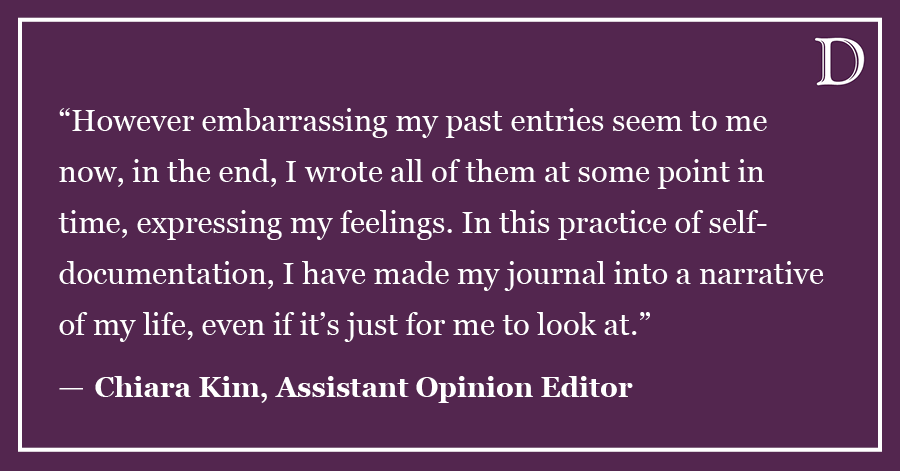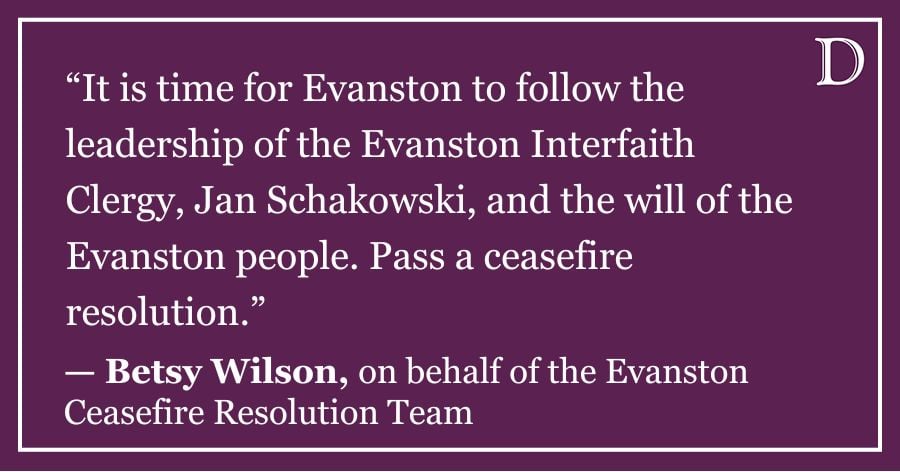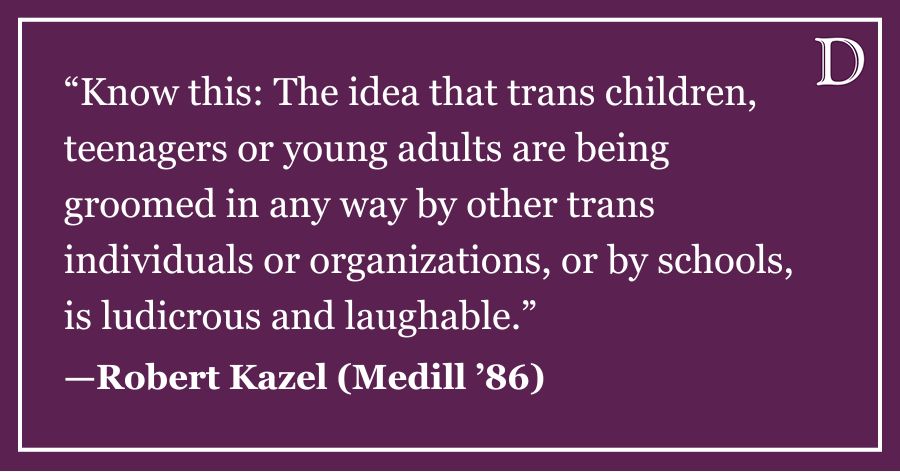As leaders in the student activist community and organizers of Social Justice Week, we were deeply disappointed by Jonathan Kamel’s recent column, which contained numerous factual errors and simplistically labeled Students for Justice in Palestine, and Social Justice Week more broadly, as “anti-Israel” and an obstacle to peace. On the contrary, we believe that any possibility of a just peace requires first acknowledging the power differential between the Israeli state and occupied Palestine, and last week’s events were planned with that in mind.
SJP hosted three events during Social Justice Week: Hafla by the Rock, Interfaith Perspectives on Palestine and a screening of the documentary “Roadmap to Apartheid.”
Hafla by the Rock commemorated the Nakba, when about 700,000 Palestinians were expelled from their homeland. It is a celebration of the steadfastness of Palestinian culture and resistance in the face of continued occupation and denial of rights.
Interfaith Perspectives on Palestine brought members of the three Abrahamic faiths to discuss their personal experiences surrounding Palestine, highlight the common ground that exists between members of the three faiths and emphasize that collaboration is possible to resolve a conflict that is political rather than religious, as it is often portrayed.
Through the use of legal documents and historical facts, the documentary “Roadmap to Apartheid” draws parallels between the Apartheid system in South Africa and Israel’s policies of land and resource control and appropriation in the West Bank and Gaza, the restrictions placed on internal Palestinian movement within those territories, and the secondary status of and denial of rights to Palestinian citizens of Israel. As the film shows, some of the most vocal advocates of this analogy are South Africans who lived under apartheid, including Desmond Tutu, who believe that Israeli policies are as bad or worse than what they experienced under apartheid.
The purpose of these events was to educate the campus community on the oppression faced by Palestinians on a daily basis and provide a starting point for dialogue and action toward achieving equal rights and justice for all living in Israel and the Occupied Territories. This was also part of the larger goal of Social Justice Week, which was to give voice to oppressed and marginalized groups.
Kamel did not attend any of these events with the exception of Hafla by the Rock, but he claimed they were unnecessarily divisive, one-sided and anti-Israel. We object to this characterization for several reasons. Criticizing Israel’s oppressive policies does not make one anti-Israel any more than criticizing U.S. policies makes one anti-American.
Kamel’s conflation of Judaism with support for Israeli policies seeks to delegitimize alternative Jewish perspectives like that offered by Rabbi Brant Rosen, who argued that Judaism has historically opposed colonialism and military conquest.
Finally, as demonstrated by SJP’s events, the power differential between Israel and Palestine clearly favors Israel. The Israeli Defense Forces control the West Bank and Gaza, not the Palestinian National Authority or Hamas. The IDF controls the movement of people and goods, as well as resource allocation of land and water. Similar issues exist inside Israel itself. Palestinian citizens of Israel have second-class status and are subjected to a policy of house demolitions, unequal access to resources, education and employment, to name only a few examples of this imbalance.
Furthermore, Kamel’s column contained numerous factual inaccuracies about SJP, SJP’s events, and basic facts about the situation in Israel, Palestine and South Africa. For example, Kamel stated that Israel and apartheid-era South Africa are “incomparable” because South Africa, unlike Israel, was not subjected to terror attacks. In fact, the armed wing of the African National Congress headed by Nelson Mandela routinely carried out violent attacks during the apartheid period, some of which targeted civilians. We ask that Kamel carefully check and properly source his facts in the future.
The goal of Social Justice Week was to highlight oppressed voices and groups. It is not the responsibility of SJP or any other participating group to feature perspectives that attempt to justify oppressive policies.
While Kamel’s unfounded attacks on Social Justice Week were clearly directed at SJP, his comments on the week as a whole detract from valuable dialogue on a number of other social justice issues and are a disservice not only to SJP, but to all of the other participating groups.
Dalia Fuleihan is a Weinberg sophomore and co-president for Students for Justice in Palestine. She can be reached at [email protected]. Matthew Kovac is a Medill junior and member of the Peace Project. Both planned Social Justice Week events. If you want to respond publicly to this column, send a Letter to the Editor to [email protected].













